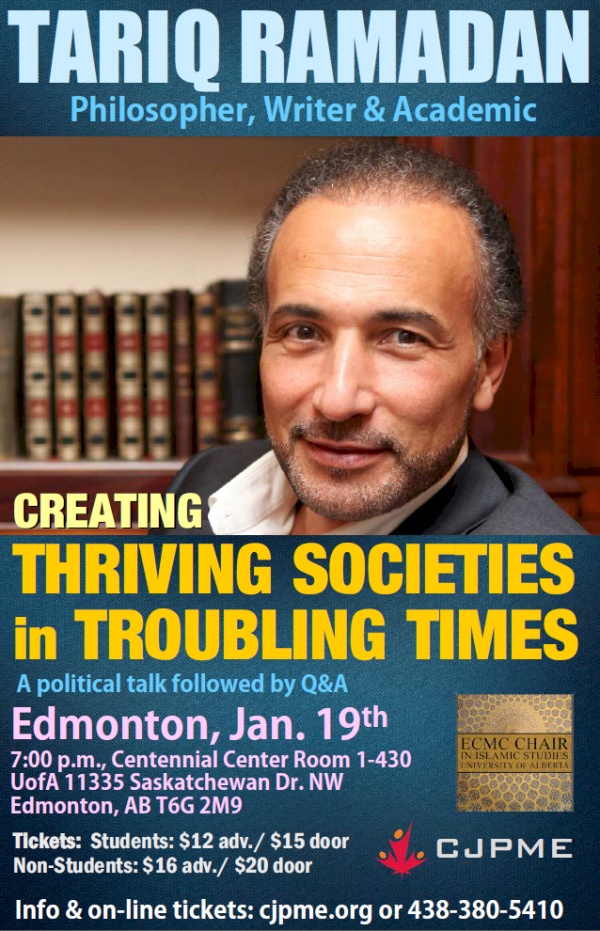
Progressive movements, whether they are political or religious or based on any number of established belief systems, require scrutiny of differing viewpoints to evolve. The complex divide that separates the Middle East and the West has, historically, been fed by a lack of understanding, but TariqRamadan, a Swiss-born philosopher, writer and academic, is seeking to bridge that gap.
Ramadan will be speaking at the University of Alberta on January 19, as part of the Department of Political Science's 2016/17 speaker series. Co-presented by Canadians for Justice and Peace in the Middle East (CJPME), the Faculty of Arts' Middle Eastern and Islamic Studies (MEIS) research group and the faculty's ECMC Chair in Islamic Studies, Ramadan's lecture - "Creating Thriving Societies in Troubling Times" - will focus on the upheavals facing the Middle East and the West: shifting alliances, ongoing conflicts and massive refugee movements.
The Swiss professor is one of the world's leading scholars on Islam. In 2000, Time Magazine named Ramadan a 21st century religious innovator. Two years later, Slate Magazine referred to him as "the Muslim Martin Luther." What is indisputable is his devotion to the study of Islam, and the advancement of interfaith/intercultural dialogue within the context of the Muslim call to modernity.
Mojtaba Mahdavi, ECMC Chair in Islamic Studies and an associate professor of political science, calls Ramadan "a well-known public intellectual and a champion of the so-called European Muslim," who has invited Muslims to "actively and peacefully participate in the Western democratic political process."
Ramadan, who is fluent in English, French, German and Arabic, has referred to himself as an "activist professor" - an apt description of a man whose impact can be seen at both the academic and grassroots levels. The Professor of Contemporary Islamic Studies in the Faculty of Oriental Studies at Oxford University keeps an extensive (and very popular) global lecturing schedule and a prodigious writing life, which now encompasses over 20 books and articles, including Islam, the West and the Challenge of Modernity (2009); The Arab Awakening: Islam and the New Middle East (2012); and To Be a European Muslim (2013).
"[These books] are important contributions to the academic literature and public debate," says Mahdavi.
In a 2004 Times Higher Education article, Ramadan is presented as the embodiment of Islamic reformist thinking. "To Muslims living in the west, he provides detailed Koranic justification to embrace the contemporary world. To westerners, he offers an alternative Muslim face to the mad mullahs and gun-toting charismatics we read so much about today."
It is these divides and misperceptions of Islam and the Muslim world - both within and without - that Ramadan will address in his lecture.
"The real issue is how to move beyond this environment of fear and terror and to create flourishing, tolerant and peaceful societies where people can live together with mutual respect and dignity," says Mahdavi. "Ramadan has clearly criticized the use of violence by extremists in the name of Islam, and war and regime-change in the name of democracy. His lecture will be of great interest to many members of many communities."
Ramadan will be speaking on Thursday, January 19 from 7 - 9 p.m. at the Centennial Centre for Interdisciplinary Science (CCIS), room 1-430.
Tickets: http://www.cjpme.org/rama_edm_2017
Students: $12 Advance / $15 At the door
Non-students: $16 Advance / $20 At the door